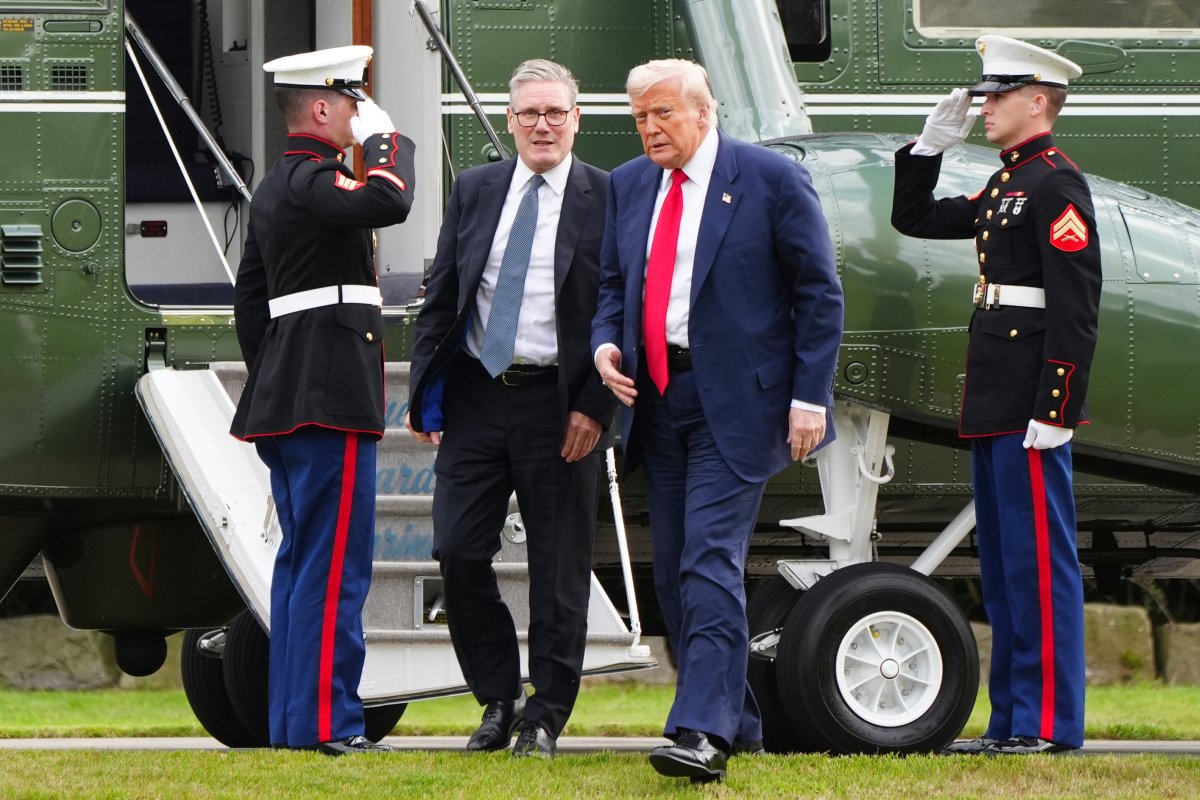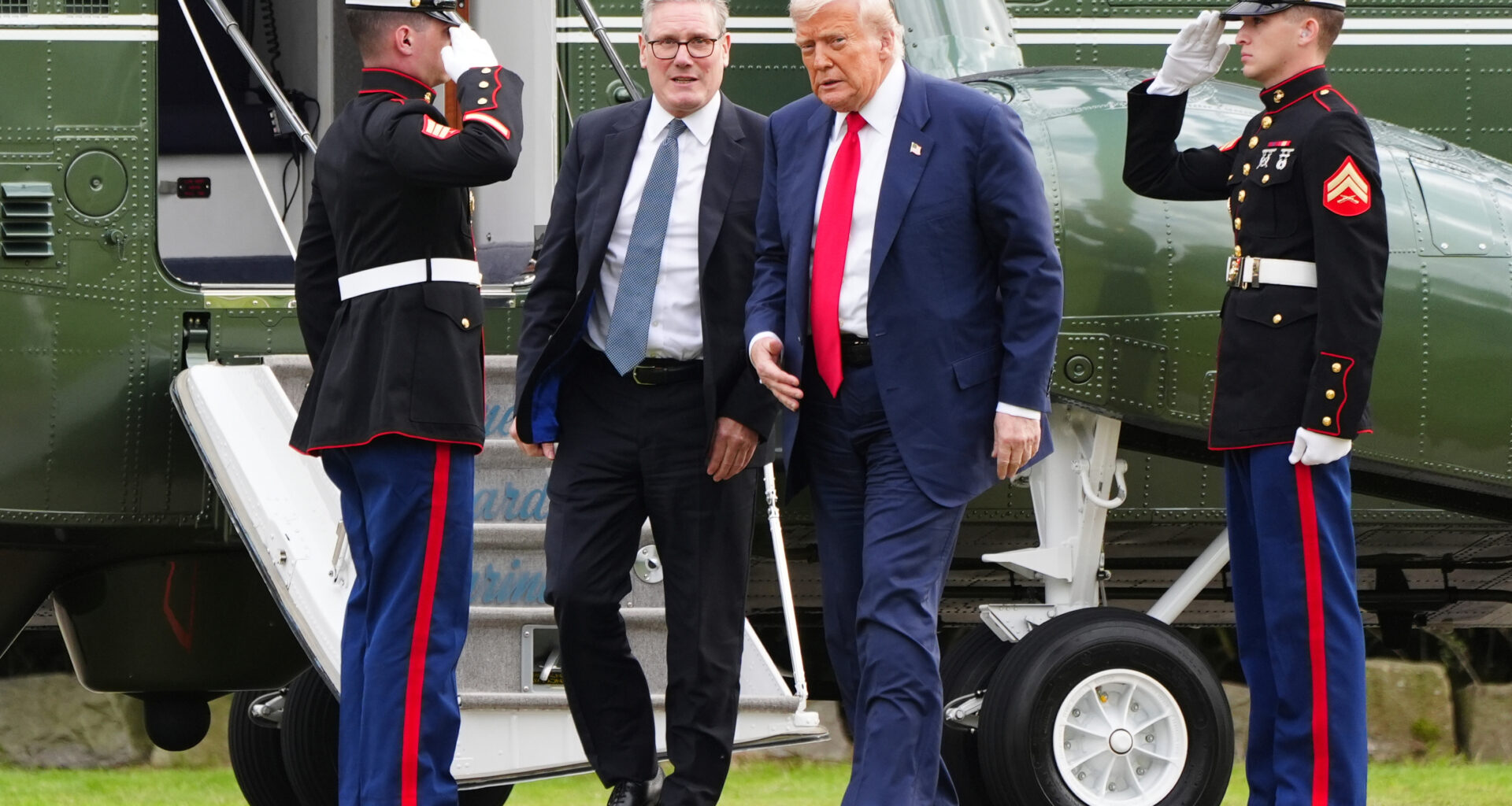United Kingdom Prime Minister Keir Starmer said Britain will recognize a Palestinian state in September unless Israel meets specific conditions.
Why It Matters
The announcement marks a major shift in U.K. foreign policy and increases pressure on Israel amid the ongoing conflict in Gaza. Starmer emphasized that recognition would be conditional on progress toward a two-state solution and meaningful peace efforts.
Israeli officials have criticized the move, warning it could undermine regional stability.
“I have always said that we will recognize a Palestinian state as a contribution to a proper peace process at the moment of maximum impact for the two-state solution,” Starmer said on Tuesday, one day after meeting with U.S. President Donald Trump in Scotland. “I can confirm the U.K. will recognize the State of Palestine by the United Nations General Assembly in September, unless the Israeli government takes substantive steps to end the appalling situation in Gaza, agree to a ceasefire and commit to a long-term sustainable peace reviving the prospect of a two-state solution.”
U.S. allies now recognizing Palestine include Norway, Ireland, Spain and Slovenia.

U.S. President Donald Trump, second from right, and British Prime Minister Keir Starmer arrive at Trump International Golf Links in Aberdeenshire, Scotland, on July 28, 2025.
U.S. President Donald Trump, second from right, and British Prime Minister Keir Starmer arrive at Trump International Golf Links in Aberdeenshire, Scotland, on July 28, 2025.
Associated Press
What To KnowWhere is Palestine?
Palestine is in West Asia and borders Israel, Jordan and Lebanon in the Eastern Mediterranean region composed of the landlocked West Bank and the Gaza Strip—the former of which is bordered by Israel to the north, west and south and Jordan to the east.
The coastal Gaza Strip region along the Mediterranean Sea is bordered by Egypt to the southwest and Israel to the north and east.
What G20 Countries Don’t Recognize Palestine as a State?
While 10 countries (Argentina, Brazil, China, India, Indonesia, Mexico, Russia, Saudi Arabia, South Africa and Turkey, as well as permanent invitee Spain) part of the G20 have recognized Palestine as a state, eight other countries have not when not counting the United Kingdom.
Those nine are Australia, Canada, France, Germany, Italy, Japan, South Korea and the United States. France, however, is set to recognize the Palestinian state this September.
In November 2012, Palestinian delegation status in the United Nations (UN) was upgraded to non-member observer as the State of Palestine.
Was Palestine Ever a Country?
Palestine has never been its own country.
It was formerly under British mandate following the post-World War I fall of the Ottoman Empire. When the State of Israel was established on May 15, 1948, and admitted to the U.N., a Palestinian state was not established and instead territories—including East Jerusalem and the Gaza Strip—were administered from 1948 until 1967 by Jordan and Egypt, respectively.
In 1988, the Palestine National Council declared an independent Palestinian state.
Palestine is recognized by 147 of the U.N.’s 193 member states.
Why is Israel Fighting Palestine?
Decades of unrest in the region between Jews in Israel and Arabs in Palestinian territories have led to violence and significant political differences.
Palestinians have long campaigned for an independent state comprising the occupied West Bank, east Jerusalem and Gaza. Israel, which has occupied those areas since the 1967 Six-Day War, has mostly been opposed to the formation of an official Palestinian state and its critique became more pronounced following the October 7, 2023, attack by Hamas militants that resulted in about 1,200 people dead and 251 taken hostage.
Israel’s subsequent war against Hamas in Gaza has killed more than 59,000 Palestinians, over half of them women and children, according to Gaza’s Health Ministry.
Claims of a genocide being perpetrated by Israel have exacerbated the situation in the region, as images of starving children have been widely publicized amid claims of Israel purposely starving Palestinians.
What People Are Saying
U.S. President Donald Trump, on Monday regarding purported mass starvation in Gaza: “We’re going to set up food centers, and we’re going to do it in conjunction with some very good people, and we’re going to supply funds, and we just took in trillions of dollars, we got a lot of money, and we’re going to spend a little money on some food, and other nations are joining us.”
U.K. Prime Minister Keir Starmer, on Tuesday: “This is the way forward. We will keep working with all our international partners to end the suffering, get aid flooding into Gaza, and deliver a more stable future in the Middle East because I know that is what the British people desperately want to see.”
What Happens Next
Starmer concluded his remarks by saying he will make an assessment in September about whether steps he encourages will meet expectations, adding that “no one should have a veto over our decision.”
Update 7/29/25, 1:14 p.m. ET: This story was updated with additional information.

